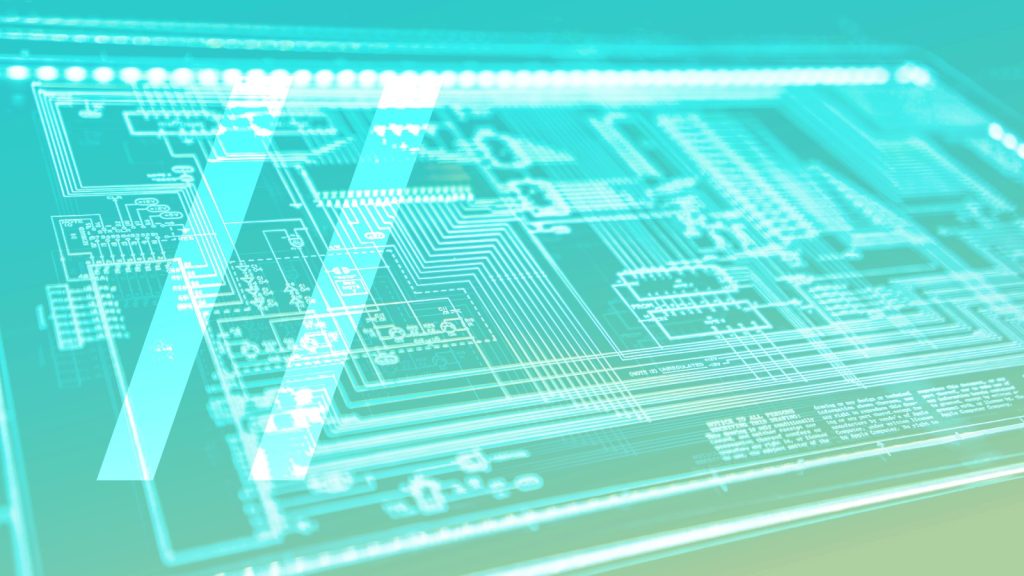The Internet of Things (IoT) is an evolving technology that has revolutionised the way businesses and consumers interact with devices and the world around them. The use of internet-connected sensors and devices allows for a greater process efficiencyThe aim of the project is to improve the quality of information, real-time monitoring and more informed decision making.
It is therefore important to be aware of the emerging trends in IoT and how they may affect our day-to-day lives. In this article, we look at some of the developments that will shape 2023.
What is the Internet of Things and how has it evolved?
The Internet of Things (IoT) is a technology that refers to the connection of physical devices to the internet, such as appliances, sensors, vehicles and other everyday objects. It aims to collect and share data in real time. The idea of connecting devices to the internet dates back to the 1980s and 1990s, but it was not until the 2000s that the technology began to advance significantly. The evolution of sensor technology, combined with the development of wireless communication technologiesThe IoT network as we know it today has been created through the use of technologies such as Wi-Fi, Bluetooth and 4G.
Over the last few years, the IoT has evolved significantly from simply connecting devices to the Internet to a complex network that includes the artificial intelligence and machine learning. In addition, the deployment of the 5G network around the world is enabling the connecting devices at higher speeds and with lower latency, which is further driving IoT adoption.
In the short to medium term future, the IoT is expected to continue to grow and evolve. The proliferation of internet-connected devices will continue to increase as businesses and consumers realise the benefits of having an integrated IoT network.
Key trends in the IoT sector in 2023
The IoT (Internet of Things) sector is expected to see increased adoption of artificial intelligence and machine learning technologies to improve the efficiency and security of connected devices. In addition, further development of IoT solutions for business and industry is expected to improve productivity and reduce costs. It is also expected to further integration of smart devices in homesThis will enable greater control of them through virtual assistants and mobile devices.
Finally, there is expected to be an increase in concerns about privacy and the data security in connected devices, which will lead to increased regulation and stricter security measures.
Main examples of IoT development in everyday life
The internet of things has enabled the development of a wide variety of functionalities and technologies that are used in consumers' everyday lives. Some examples are detailed below:
- Smart homesIoT devices: are one of the most common applications of the IoT. IoT devices, such as smart thermostats, door locks and security cameras, allow consumers to control and monitor their homes from anywhere with an internet connection.
- Connected vehiclesIoT: use the IoT to connect to the internet and share real-time data with other vehicles and traffic systems. This enables better traffic management, improved road safety and a better experience for drivers.
- Wearablessuch as smartwatches and fitness trackers, use sensors and the IoT to collect real-time data on consumers' physical activity, health and well-being. This allows consumers to monitor their health and take action to improve their wellbeing.
- Intelligent agricultureIoT: uses IoT to monitor and control weather, soil moisture and other factors that affect plant growth. This allows farmers to improve the efficiency and quality of their crops.
- Smart citiesIoT to monitor and manage traffic, lighting, utilities and other aspects of urban life. This enables better management of resources and a better quality of life for residents.
As you can see, the IoT is changing the way we interact with the world around us and improving our quality of life.
Advantages and disadvantages of the internet of things
Here are some key points to highlight the main advantages:
- Increased efficiencyIoT enables greater process efficiency by connecting devices and enabling real-time data collection. This allows businesses to make more informed decisions and improve process efficiency.
- Increased comfortThese types of devices allow consumers to control and monitor devices from anywhere with an Internet connection, providing greater convenience and control.
- PersonalisationThe new technology: allows for greater personalisation of products and services, which improves the customer experience and increases customer loyalty.
However, there are also some disadvantages to making use of such technologies:
- SecurityThe lack of security standards can present security challenges, as devices can be vulnerable to cyber-attacks and the lack of security standards can expose data to risks.
- CostIoT adoption can be costly, requiring investment in devices, infrastructure and resources to manage and analyse data.
- ComplexityIoT can be complex to implement and manage, which may require specialised skills and additional resources.
It is important that businesses and consumers carefully consider these factors before adopting Internet of Things technology and take steps to mitigating risks and reap the benefits of technology.
Become a professional in the IoT sector
If you want to take further steps professionally and become a qualified professional and expert on these emerging technologies, we encourage you to discover some of the specialised programmes we offer from IMMUNE Technology Institute.
We seek to ensure that our students acquire the skills they need to improved digital and technological skills that give them a new perspective on business processes, market opportunities, leadership and organisational structure. A solid education and an innovative mindset are the basis for the future professionals who will be the protagonists of this digital transformation.
If you are looking for technology training fill in the form for more information.
